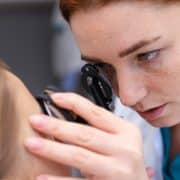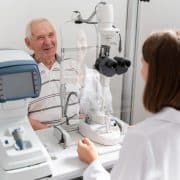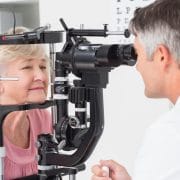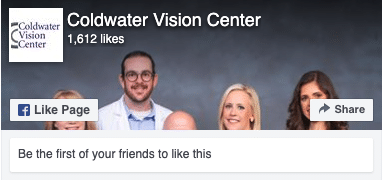How Macular Degeneration Is Diagnosed
Macular degeneration typically happens to people over 50 years of age. That’s why it’s so important to visit your optometrist in Coldwater, MS, if you want to preserve your vision for years to come.
However, if you are like most people, you want to learn everything you can about any given condition so you can talk intelligently with your eye doctor. So, let’s take a look at how macular degeneration is diagnosed. Then, your optometrist will go over everything else with you.
The Tests Used to Diagnose Macular Degeneration
These five tests are what your eye doctor will use to determine if you have macular degeneration in Coldwater, MS, and what type you have.
Amsler Grid Test
During an Amsler grid test, your eye doctor will ask you to look at a grid that has straight lines and a large center dot. If you see blurry, broken, or wavy lines, you might have macular degeneration. It might also be an indication that your macular degeneration is getting worse. You can also use this test yourself to monitor the symptoms of this disease.
Dilated Eye Exam
During a dilated eye exam, your pupils are dilated using special eye drops. Then, your eye doctor will use a lens to look deep into your eyes for signs of macular degeneration and other eye diseases.
Optical Coherence Tomography (OCT)
During an optical coherence tomography test, an imaging machine will take detailed pictures of the back of your eyes. It’s a simple, painless procedure that involves you looking into a lens while the OCT machine takes pictures of your eyes.
Optical Coherence Tomography Angiography (OCTA)
During an optical coherence tomography angiography test, a diagnostic tool will use the reflection of a laser light (instead of dye) along with the OCT scanning device to take 3D images of how the blood is flowing through your eyes.
Fluorescein Angiography
During a fluorescein angiography test, your eye doctor will inject fluorescein (yellow dye) into a vein in your arm. A special camera will then track that dye as it flows through the blood vessels in your eye. The pictures that are taken will show if there is any leakage under your eye’s macula.
Are You Looking for an Optometrist in Coldwater, MS?
If you are having issues with your eyes or think you might have macular degeneration, please Contact Coldwater Vision Center today to schedule an exam. We use state-of-the-art technology and advanced optometry procedures to ensure you receive the highest quality of care possible.






